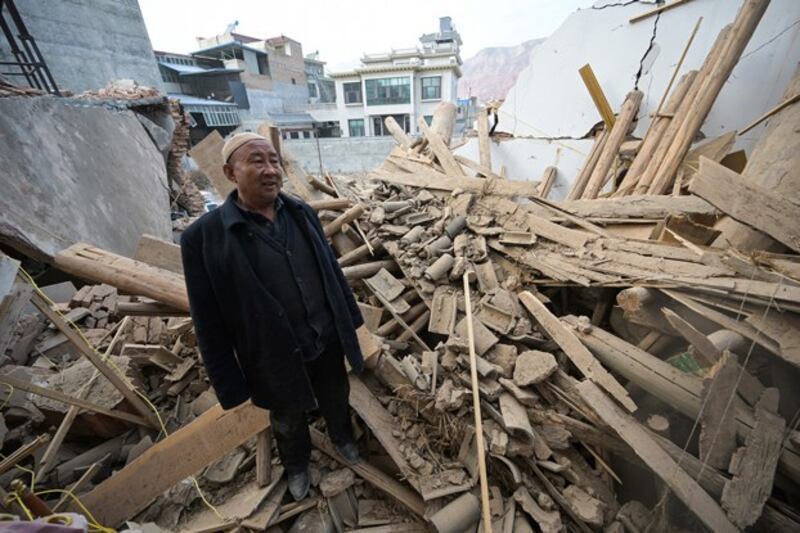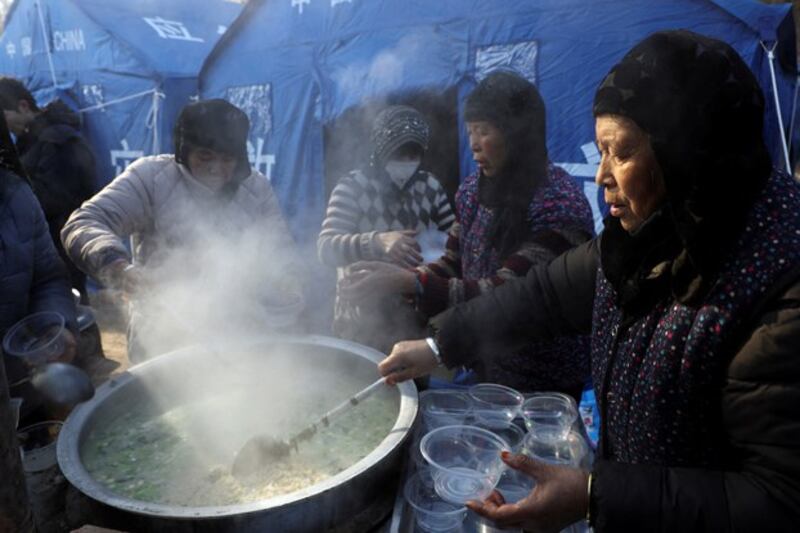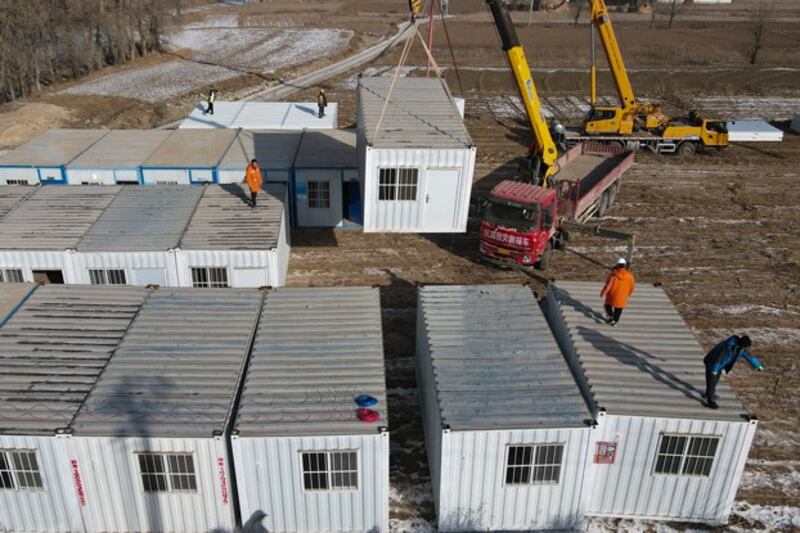UPDATED at 3:30 P.M. ET on 12-29-2023
Tibetans in earthquake-affected areas of China’s Qinghai Province have received scarce help from the Chinese government, except for “some tent facilities” and utilities checks for those whose homes were destroyed by a December earthquake, at least three sources inside the country told Radio Free Asia.
A magnitude 6.2 earthquake rocked the northwestern Chinese provinces of Qinghai and Gansu on Dec. 18 — one of the most powerful earthquakes the country has seen in recent years — killing at least 149 people and injuring over 780 others.
The earthquake brought down buildings across Jishishan county and Linxia Hui Autonomous Prefecture in Gansu — the worst hit province — as well as in parts of neighboring Qinghai, a province on the Tibetan plateau. The affected areas in Qinghai are mainly populated by Tibetans.

In the absence of adequate aid from the Chinese government, Tibetans in other parts of Chinese-occupied Tibet as well as Tibetan lay and monastic communities have sent funds and supplies to those displaced by the quake, said the sources, who asked not to be identified for safety reasons.
“Other than laying a few tents three days after the quake, the Chinese government did not provide any special assistance or aid, but many Tibetan individuals, organizations, and monasteries from all over Tibet have volunteered help with funds and relief materials, so we have not faced any immediate difficulties,” at least two sources told RFA.

Another source noted that more than a week after the earthquake, Chinese authorities had conducted checks to see if water and electricity supplies were flowing but that no other aid or housing and relocation facilities had been provided.
China's local housing and urban-rural development bureau, however, said it is building 15,000 prefabricated houses in Gansu for quake-affected people and estimates they will be completed by the end of December, Chinese state media reported.

Tibetans living in Tibet and in Tibetan areas of western Chinese provinces, such as Qinghai, say they are subject to political, economic and religious discrimination as well as human rights abuses. Some fear Beijing is now pursuing ever more aggressive policies aimed at eradicating their national and cultural identity.
Separately, another source also told RFA that Qinghai authorities issued an order stating that no photos or video footage of the earthquake be posted on social media, particularly photos of areas and homes destroyed by the quake.
Official media are typically ordered to publish only central-government approved news copy during natural disasters, while local people who speak out have had their posts deleted or been targeted by local authorities for detention and other forms of harassment.
Translated by Tenzin Pema for RFA Tibetan. Edited by Roseanne Gerin and Matt Reed.
Clarifies that t he quake-affected areas in Qinghai province are mainly populated by Tibetans.

